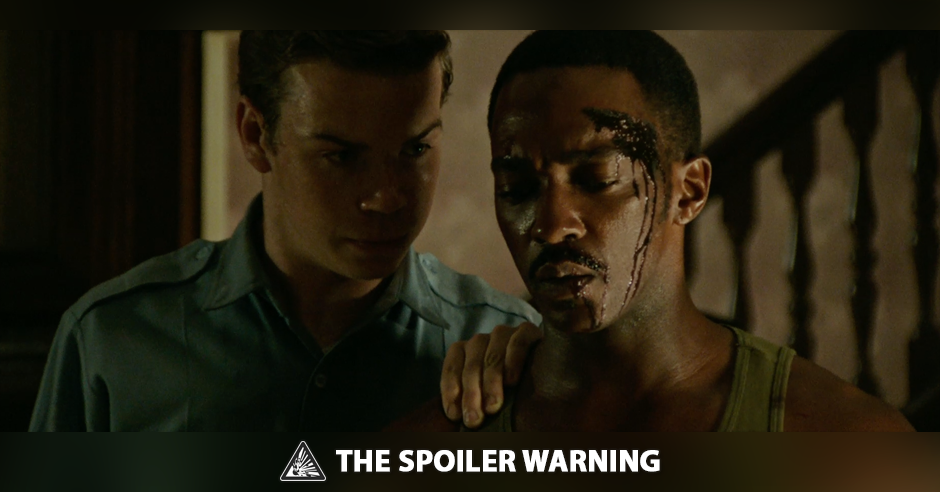Art always has an obligation towards truth. When I say “truth”, I don’t mean the literal “this happened, then this happened” play-by-play of real-life events; that slavish devotion to facts which tranquilizes so many direct-to-TV biopics. Documentary precision is a valuable type of truth, but there’s more than one way to skin a cat. A film might compress timelines to convey deep character truths — Jobs, Selma, and The Imitation Game come to mind as recent examples. Or it might act in service to a cultural truth: hyperbolizing real characters to better tease out the Zeitgeist (The Social Network, American Hustle), or fabricating new ones whole cloth to show, by synecdoche, what a direct-telling might obscure (Dunkirk, Life Is Beautiful). That truth might even be emotional or aesthetic or intentionally cryptic — it hardly matters to me. What matters is that it exists: some silent contract, however vague, between the creator and the audience. We don’t necessarily know the terms, but we feel it when they’re violated.
Kathryn Bigelow’s latest film, Detroit, can’t seem to decide which truth its wants to tell. Set in 1967’s Detroit, it devotes most of its runtime to a single night in a single location: the Algiers Motel, where white police officers in search of a nonexistent “sniper” brutalized (and ultimately murdered) innocent black tenants. Structurally it unfolds a bit like OJ Made In America, opening with societal context (the riots) and closing with a procedural. This setup lets the film operate on two levels: presenting the Algiers incident in handheld, documentary-style specificity, and examining the broader climate which the incident exemplified. It also makes it excellent and infuriating, in equal parts.
Excellent, because Bigelow knows how to convey chaos. She knows how to thrust you in the middle of the action, the stress, the claustrophobic anxiety of a silent battlefield — a skill which /ought/ to be perfect for capturing the deep, structural issues of race relations and police brutality. For showing us what happens when real people are confronted with tense situations: the choices they make, the protective callouses they wield as blunt instruments, the biases and gut-reactions and uneven power dynamics which blur into something toxic and explosive. The Hurt Locker makes us sympathize with a war-torn adrenaline junkie. Zero Dark Thirty forced us to reckon with the mindset of those who justify torture. And for maybe 20 minutes, Detroit lets us feel the fear of both oppressed and oppressor. It’s remarkable.
Infuriating, because the film is reckless with both levels of truth. It wants to have its cake and eat it too; or rather, it wants to put us on a socially conscious diet while shoving nothing but cake in our faces. Bigelow cares about broader context in the abstract, but she refuses to trust us with any specific context from scene to scene. Every character is either Good or Bad, and which camp they fall in is self-evident from the moment they appear. Will Poulter’s officer is cartoonishly, devoid-of-subtext Bad: a racist, sadistic power junkie who abuses residents just for the thrill of abuse. John Boyega’s security guard may have been present at the event and complicit in his silence, but he is Good with a capital G. Victims are borderline angelic, and even other officers (who look the other way in disgust but never lift a finger to stop the mayhem) have an aura of wrong-time-wrong-place innocence. Not only does this make the film irresponsible with the literal truth of the night at the Algiers; it hurts the emotional truth of brutality in general, and makes its own narrative fuzzy and weak. It substitutes legitimate, complex issues for the actions of a lone super-villain. It’s too timid, somehow, avoiding the rough edges which a bolder film (think Do The Right Thing) would prod and expose. By straining to prove what side it’s on, it condescends to the audience and diminishes its own point. It’s easy, and cheap, to root for pure good over incomprehensible evil. Seeking justice for the flawed, against evils we recognize and understand — that’s what empathy demands.
Chris and I grapple with Detroit in this week’s episode of The Spoiler Warning
